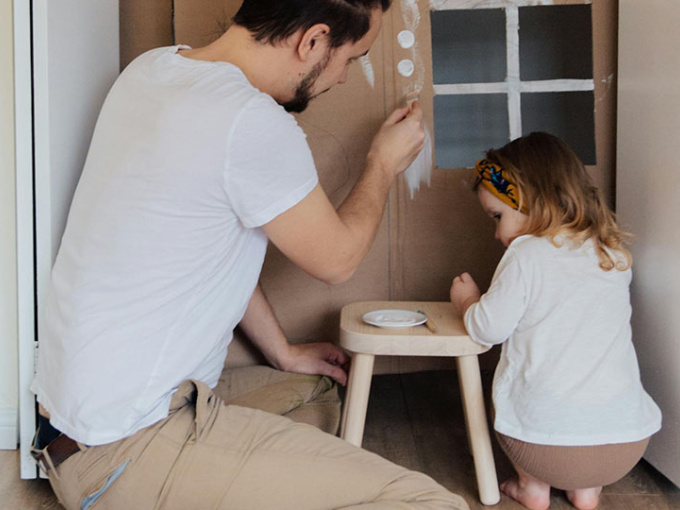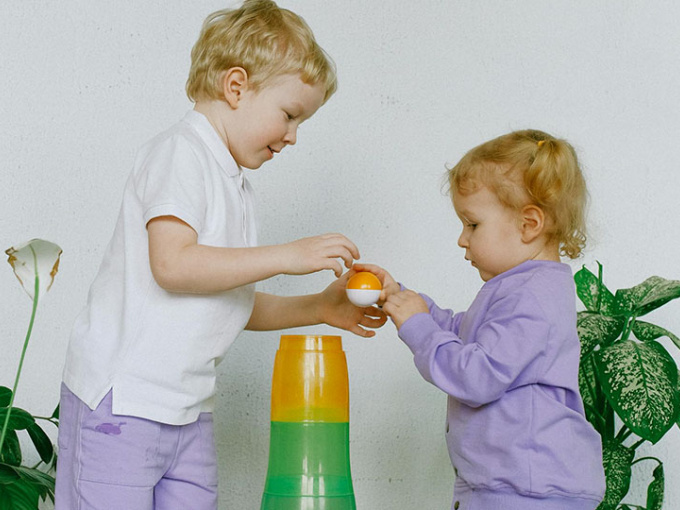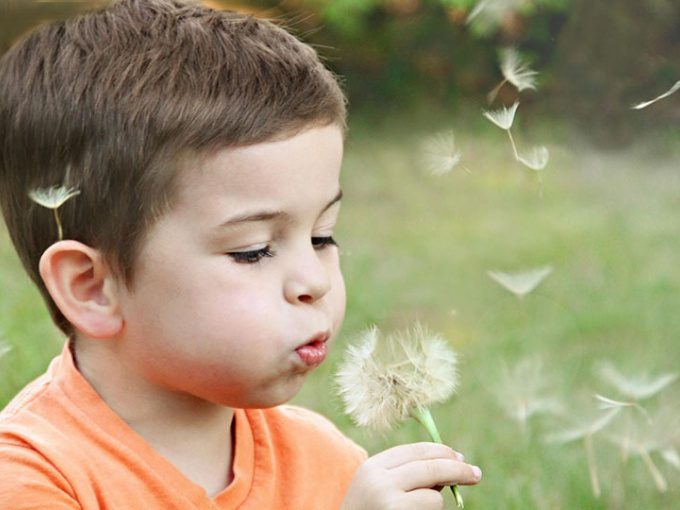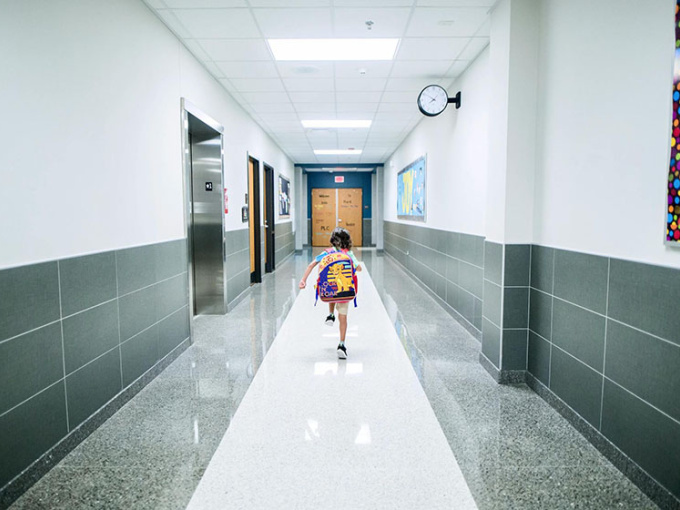
Children of all ages including babies were affected by the pandemic, and for some the effects may be ongoing.
It’s five years this month since Ireland was thrust into lockdown due to the COVID-19 pandemic. With a national stay-at-home order declared from 27 March 2020, and some restrictions in place until 2022, Ireland had one of the most stringent lockdowns in Europe at times according to the Oxford COVID-19 Government Response Stringency Index (Hale et al., 2021). We know from research during lockdown, and subsequently, that people of all ages were affected by the pandemic, including young children. In addition to the closure of preschools and schools, lockdown also saw the closure of playgrounds and a 2km travel limit in place in Ireland.
In May 2020 a team of researchers in MIC collected data from over 500 parents of children aged from birth to 10 years and asked them about their child’s play, learning and development during lockdown (Egan, Pope, Moloney, Hoyne & Beatty, 2021). It was clear that very young children were feeling the effects of the pandemic, missing out on their friends, wider family, their education and their routines. For example, one mother described the difficulties for her 2-year-old daughter, and for herself, saying “Not having other children to play with is especially challenging as I also have a baby who was just 7 weeks old when lockdown began. I'm breastfeeding and have no family support during the day so my attention is torn between the two. She finds this very difficult”.

Children’s play around the world was also affected during lockdown and it differed country to country, depending on restrictions (Beresin & Bishop, 2023). In homes globally, typical changes included increased screen time and decreased access to playgrounds and outdoor play with peers (Egan & Beatty, 2021). In some countries such as Spain, children were not permitted outside their homes at all for weeks at the start of lockdown. During lockdown another change was the incorporation of the virus and restrictions into young children’s play, trying to make sense of their changing world (Egan, Pope, Beatty & Hoyne, 2023).
In Ireland, and in other countries, one game children played was ‘Corona Tag’ or ‘Covid Chasing’ which involved avoiding getting caught because then you ‘had Covid’ and were ‘dead’ (Egan et al., 2023). Other examples of COVID related play at the time included children building lego ventilators, socially distancing their dolls and teddies, and SIMS figures wearing masks. Children also role played doctors and nurses, being a Garda checking how far people travelled and if they were essential workers, or being shop keepers telling everyone to stand back and wiping everything down.

Newly published research this month, shows that difficulties with play continued even after lockdown ended and children returned to school. With restrictions still in place, teachers described the challenges of children being put in ‘pods’, having to limit the use of toys and games for hygiene reasons, and classes not allowed mix in the yard (O’Brien & Egan, 2025). This research was conducted by MIC graduate, Colin O’Brien, as part of his undergraduate dissertation in the Department of Psychology.
However, lockdown life wasn’t all bad for all families, with some highlighting positives (Egan et al., 2021). Some parents in our study in Ireland welcomed the break from long commutes, the demands of the daily routine and the juggle of work, home life and a packed timetable of extracurricular activities. Parents referred to a slowing down of pace and increased family bonding, with more time to play and to explore the outdoors. This patterns was also seen internationally. A study in Scotland in 2021 found those with higher levels of positive change at that time were more likely to be female, from younger age groups, married or living with their partner, employed, and in better health (Williams et al., 2021). Wider research also suggests that those more marginalised in society were most negatively affected.

Recently, we began to consider the influence of the pandemic on our youngest citizens – those who were babies or born in 2020 – and asked junior infant class teachers how these children were settling into school this year (Egan & Pope, 2025). Unfortunately, many teachers highlighted more speech and language concerns and communication difficulties for the children starting school now, in comparison with children before the pandemic. In relation to social and emotional issues, teachers also described this year’s junior infants as having more separation anxiety from their parents, more anxiety in general and less emotional regulation, as well as challenges in managing personal care.
These new findings, consistent with reports from the UK (e.g., Centre for Young Lives, 2024), highlight that babies born around the time of the pandemic may not be faring as well developmentally on starting school, as those born before the pandemic. Even though they would have no lasting memory of the difficult and stressful times in 2020, and most would not have missed out on preschool, we know that many changes took place in their homes and social environments over a prolonged period. Parents were facing increased stress, older siblings were missing out on school, there were reductions in social contacts and limited or no developmental checks for some children. This all occurred during the early stages of these children’s lives, when rapid developmental changes take place.

In response to the recent survey about junior infant classes some teachers also highlighted that they could see effects on older children in the school too. The children currently in 4th, 5th, and 6th class, for example, missed out on considerable time in their earliest school years – junior infants, senior infants and 1st class – with the extended school closures during 2020, and additional closures in 2021. We know that even when they returned to school that circumstances were challenging for children, teachers and families, with ‘pods’, masking, ventilation, hand sanitising, staggered break times, contact tracing, infection outbreaks and more missed school days due to illness. We have also recently launched a new survey for teachers of all primary school classes to gather their views on the potential lasting influences of the pandemic on school children.
Due to the complex interplay of the many factors that impact young children’s development (Egan & Pope, 2022), it may not be possible to pinpoint exactly why we’re seeing some of these changes, or predict how long they might last. These children are the first generation in living memory to experience their earliest months and years of life within a pandemic. It is important therefore, that not only are these experiences well-documented and followed up, but that the necessary supports are put in place in communities and schools to foster young children’s learning and development.
By Dr Suzanne Egan, MIC Department of Psychology & Dr Jennifer Pope, Department of Reflective Pedagogy & Early Childhood Studies
References
Beresin, A. & Bishop, J. (2023). Play in a COVID Frame: Everyday Pandemic Creativity in a Time of Isolation. Open Book Publishers. Bookwinner of the 2024 Opie Prize by the American Folklore Society
Centre for Young Lives (2024). An evidence-based approach to supporting children in the preschool years. Child of the North, UK.
Egan, S.M. & Beatty, C. (2021). To School through the Screens: The Use of Screen Devices to Support Young Children’s Education and Learning During the COVID-19 Pandemic. In Irish Educational Studies, 40, 275-283.
Egan, S.M., & Pope, J. (2025). Infants of the Pandemic: Teacher Perspectives on the Early Development and School Readiness of Children Starting School in September 2024 – Summary of Key Findings. Mary Immaculate College, Limerick.
Egan, S. M., & Pope, J. (2022). A Bioecological Systems Approach to Understanding the Impact of the COVID-19 Pandemic: Implications for the Education and Care of Young Children. In Educating the Young Child (pp. 15-31). (Educating the Young Child; Vol. 18). Springer.
Egan, S.M., Pope, J., Beatty, C. & Hoyne, C. (2023). How Young Children Played during COVD-19 lockdown in 2020 in Ireland: Findings from the Play and Learning in the Early Years (PLEY) COVID-19 Study. In A. Beresin & J. Bishop (Eds.) Play in a COVID Frame: Everyday Pandemic Creativity in a Time of Isolation. Open Book Publishers. Bookwinner of the 2024 Opie Prize by the American Folklore Society
Egan, S.M., Pope, J., Moloney, M., Hoyne, C. & Beatty, C. (2021). Missing Early Education and Care During the Pandemic: The Socio-Emotional Impact of the COVID-19 Crisis on Young Children. Early Childhood Education Journal, 49, 925-934.
Hale, T., Angrist, N., Goldszmidt, R. et al. (2021). A global panel database of pandemic policies (Oxford COVID-19 Government Response Tracker). Nature Human Behaviour, 5, 529–538 (2021).
O’Brien, C. & Egan, S. (2025). There hasn’t been a lot of play this year: Teacher perspectives on play at school and young children’s socio-emotional development during COVID-19 restrictions. Journal of Early Childhood Research.
Williams, L., Rollins, L., Young, D., Fleming, L., Grealy, M., Janssen, X., Kirk, A., MacDonald, B., & Flowers, P. (2021). What have we learned about positive changes experienced during COVID-19 lockdown? Evidence of the social patterning of change. PloS one, 16(1), e0244873.



